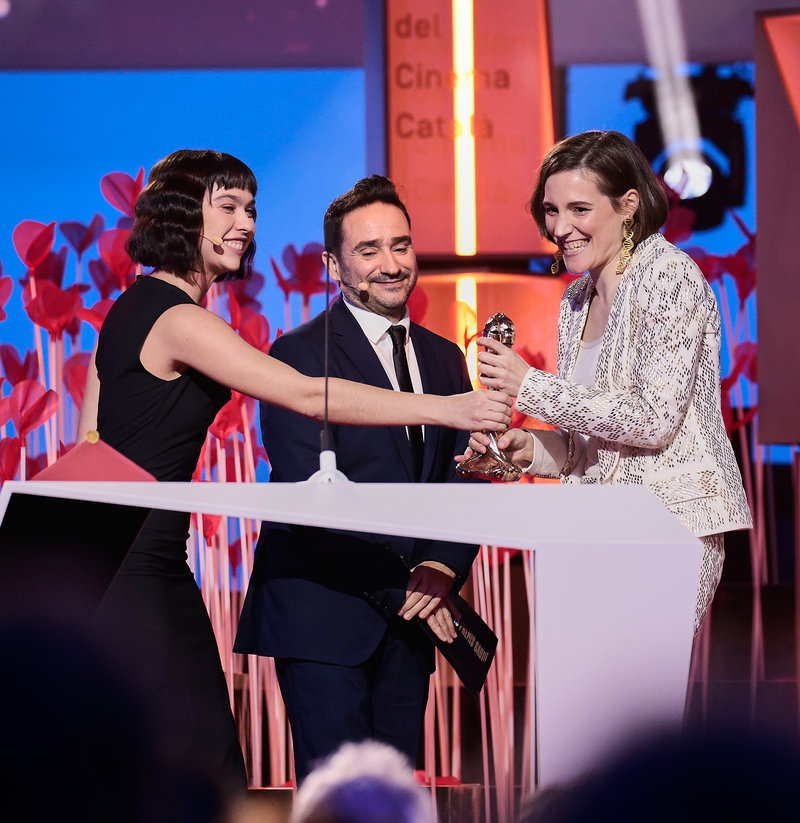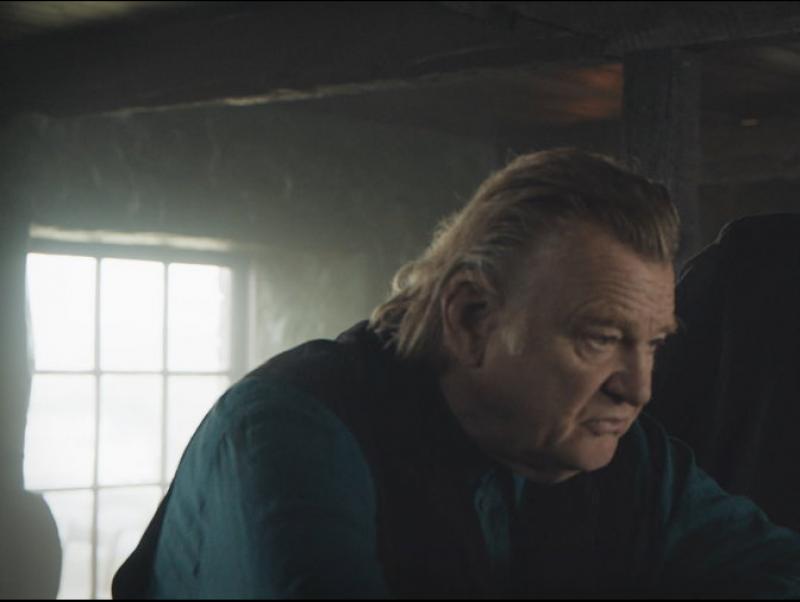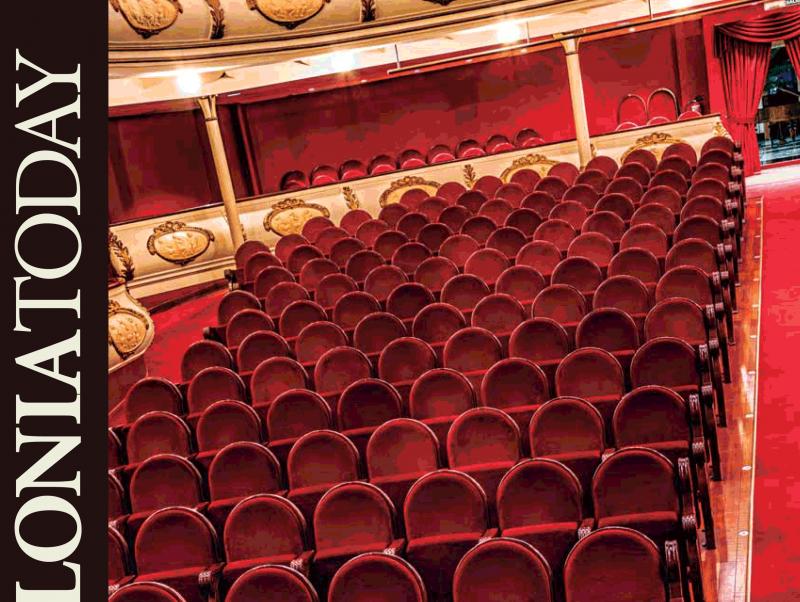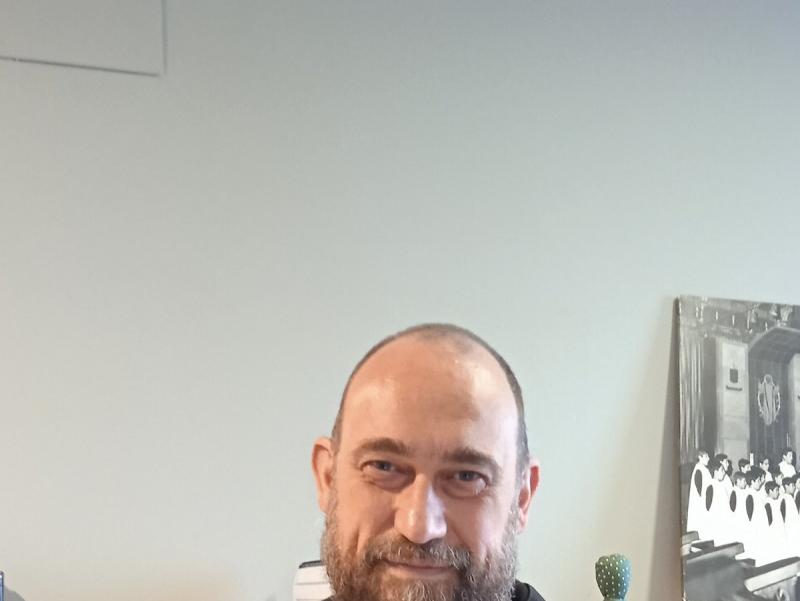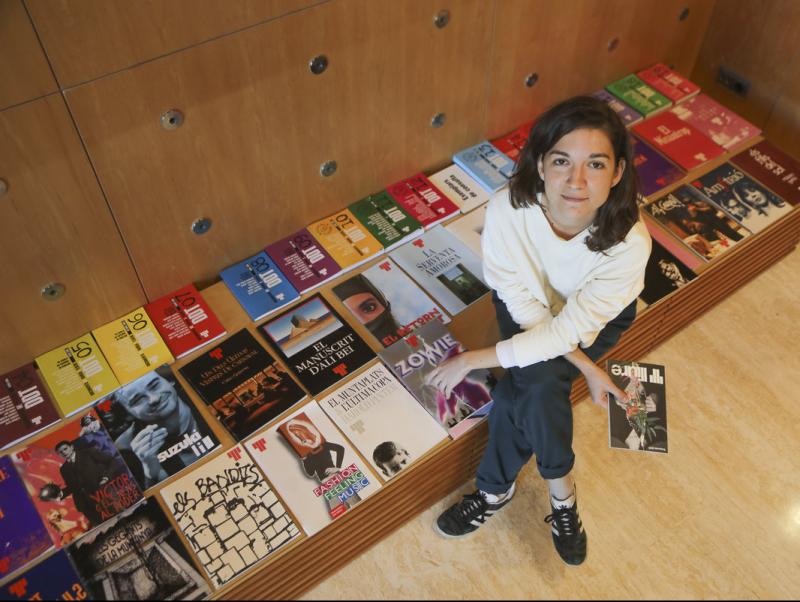Features
carla simón
Winner of the Gaudí award with the film Alcarràs
“The film is about something that is ending”
Almost a year after winning the Golden Bear at the Berlinale Fil Festival with Alcarràs, Carla Simón (Barcelona, 1986) continues her double journey: collecting awards and travelling all over the world to present the film. The Catalan Film Academy awarded her four Gaudí awards (best film, best director, best screenplay and best production direction), plus the Audience Award. We spoke with the filmmaker about the success brought by the film this year.
Five years ago, we interviewed you as the winner of the Gaudí Award for your film Estiu 1993. Does it change much the second time you win?
I experienced it similarly, in the sense of the joy it gives you. Estiu 1993 was related to my adoptive father’s family, and I remember that when we finished the gala they came and we celebrated, and Alcarràs has a lot to do with my adoptive mother’s family. It’s been like a celebration with different families. It doesn’t change that much, it’s the same feeling of pride in the work done and sharing it with the team.
Let’s go back to the beginning. How did the idea come about?
It was after the death of my godfather. I suddenly understood the value of what he was leaving behind, this space we had shared as a family. I remember one Christmas day talking to my uncles and saying that this should be made into a movie. I was writing Estiu 1993 at the time and the idea just floated around. I knew it was a good project.
You dedicated one of the awards to the farmers from western Catalonia. You also did it when you received the Golden Bear in Berlin. Is the film a homage to them?
It is in that it’s about something that’s coming to an end, a way of farming as a family and of living, with generations living under the same roof. We’re talking about something that is not protected at all, that’s really coming to an end. Agriculture doesn’t end, new models appear, with larger companies that buy up land and put people to work there. It has nothing to do with this way of taking care of the land in a small and more respectful way, which is what we need now in the moment of climate change we’re living in. There’s a vindication of how important it is that this does not disappear. We’re a little pessimistic, to tell you the truth.
The producer Tono Folguera said that Agustí Villaronga paved the way for making films like Alcarràs. Do you see it that way?
Yes! When I think of him I feel a lot of freedom, and that’s really essential for any filmmaker who makes independent films and is looking for their voice. He started with films that experimented a lot, and then he made films that connected with the audience in a very direct, incredible way. He’s made a very important contribution both to the Catalan language and to Catalan cinema. He leaves a great legacy and will go down in history, no doubt.
What can you tell us about your new project, Romería?
We can’t say much because it’s still in its infancy. It’s a film about family memory, a kind of journey, a search for origins, which is something I have a great concern for. What happens when you don’t have access to the memories of your family, when you need them to create your own identity? It’s a little more urban than Alcarràs. It’s very early to say much about it, we’re still defining many things about the project, but when we’re clear on everything we’ll give out all the details.
interview cinema
Related news
Leave a comment
Sign in.
Sign in if you are already a verified reader.
I want to become verified reader.
To leave comments on the website you must be a verified reader.
Note: To leave comments on the website you must be a verified reader and accept the conditions of use.

